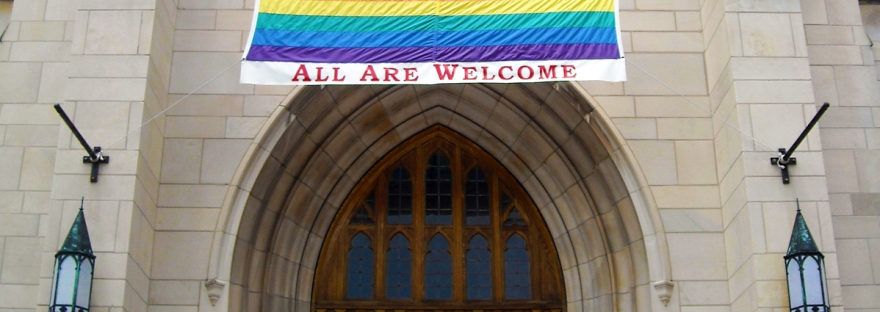The Ghana Catholic Bishops’ Conference (GCBC) has published a declaration on recent LGBTQI activities in Ghana which comes as an intervention into the national conversation about the establishment of an LGBTI office in Accra.
“At the beginning of lent, the GCBC should come up with a message of reflection and repentance for the people of faith. Instead, it instigates violence and hate crimes against LGBTI people by using words such as ‘crusade’ against LGBTI in an affirmative way,” says Davis Mac-Iyalla, Executive Director of Interfaith Diversity Network of West Africa.
Davis continues by asking: “Our local bishops have distorted the powerful message of mercy and pastoral care for LGBTI people and their families that Pope Francis promotes. How do they relate to the Pope who most recently has spoken out in favour of state laws for civil unions of same-sex couples and the right for LGBTI people to have a family?”
The arguments made by the GCBC are outdated and badly informed. When the bishops refer to biblical perspectives on homosexuality, they present interpretations that are outdated according to the theological standards of the Roman Catholic Church. In 2019, the Biblical Pontifical Commission has published a study on biblical anthropology in which it has expressed the conclusion that the story about Sodom and Gomorra in Genesis chapter 19 does not deal with homosexual people, but with sexual violence exercised by the (mostly) heterosexual men living in Sodom breaking the customary law of hospitality.
The GCBC translates the Greek word ‘arsenokoitai’ in 1 Corinthian 6:9f. and 1 Timothy 1:10 into two different meanings; ‘sodomites’ and ‘sexual perverts’ where in fact the literal translation is ‘male bedders’. From the cultural context of Greco-Roman antiquity, it is evident, that the verses refer to exploitative sexual relationships between men, but not to durable ones based on love and mutual care. This shows not only how careless the GCBC translations are, but also that the exact meaning of the Greek word is less than clear for us today.
“In the discussions of the Bible’s teaching, we often miss the references in the Gospels of its warm message of inclusion and of welcoming. Why is it not possible for the Catholic bishops to apply this to LGBTI people?” asks Davis Mac-Iyalla.
When the bishops refer to the Catholic Church’s teaching on homosexuality, they base it on a heteronormative interpretation of the creation accounts in Genesis chapter 1 and 2. They connect these chapters with the idea of an order of nature with the ‘rich symbolism and meaning’ of sexual activity in heterosexual marriage. This theological anthropology ignores that sexual orientation is considered a variety within the norm according to medical and psychological academic standards. While referring to the allegedly ‘right reason’ they side-line scientific knowledge with detrimental effects for lesbian and gay people.
The title of the GCBC declaration makes the reader expect that it is dealing with “LGBTQI” activities in Ghana. However, the theological issues of gender identity of trans people and sex characteristics of intersex people are not addressed at all which again shows a lack of intellectual diligence by the authors of this document.
IDNOWA welcomes the declaration that the GCBC sees LGBTI people as humans with human rights, even though this should go without saying (See article 1 and 2 of UN declaration of Human rights). These human rights include, among others, the right to physical integrity; equality and non-discrimination education in school and the freedom of religion/beliefs and the right to have a family. By rejecting attempts of LGBTI organisations to have a common office from where they can pursue the goal to realize their human rights, the GCBC practically denies the human rights of LGBTI people. The GCBC falsely reduces the plethora of human rights to the one right to marry a same-sex partner and ignores all others. Human rights are indivisible and indeed article 30 of the UN declaration of human rights, says that no group should act in a way that would destroy the rights and freedoms of others.
“The declaration of the GCBC lacks the empathy and understanding for the situation of the lives of LGBTI people in Ghana,” Says Mac-Iyalla. “The IDNOWA would like to start a personal dialogue with Ghanaian Catholic Church leaders to help provide a better starting point for the pastoral work of the church and to help the GCBC make their support of the human rights of LGBTI people more effective for the future.”

